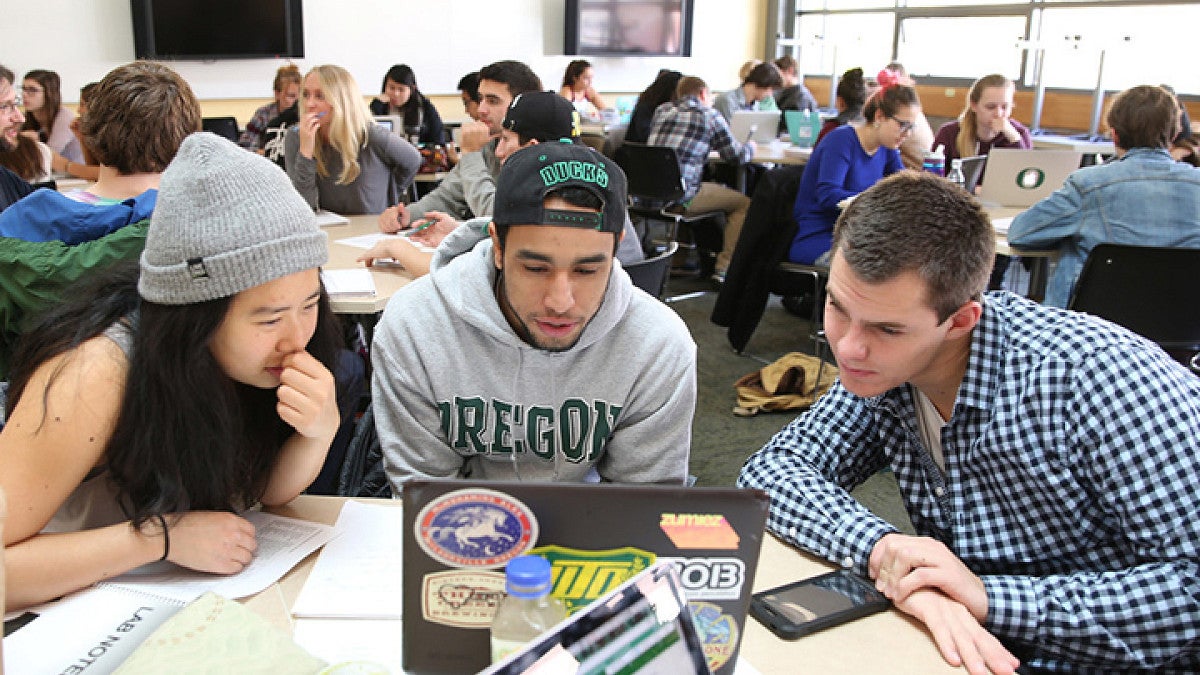We believe in learning by doing.
At the University of Oregon, our cybersecurity students engage in hands-on experiences that bridge classroom theory with real-world practice. These opportunities not only prepare students for professional success but also contribute cybersecurity services to public sector organizations and government agencies across Oregon.

Real-World Training: Teaching Security Operations Center (TSOC)
A signature element of our program, the Teaching Security Operations Center (TSOC) immerses students in a fully operational cybersecurity environment. Working alongside experienced mentors, students build practical skills in cyber operations—including threat detection, incident response, and systems defense—while addressing real-time cybersecurity challenges faced by today’s organizations.

Client-Facing Experience: Cyber Risk Clinic
In the Cyber Risk Clinic, students collaborate with real-world clients to identify, assess, and mitigate cybersecurity risks. They help public agencies, nonprofits, and underserved communities enhance their digital resilience—while gaining in-demand job skills in risk analysis, client communication, and cyber hygiene.

Industry Engagement: Internships and Co-ops
After completing core coursework, students can apply for paid internships or curriculum-integrated co-op positions with our network of industry partners or other qualified organizations. These experiences provide valuable exposure to professional environments, mentorship from industry experts, and a competitive edge in the job market. In fact, many of our students are offered full-time positions by their internship or co-op host organizations after graduation.

Research or Capstone Project
Research groups within the Computer Science Department invite qualified students to participate in faculty-led research or capstone projects that deepen their knowledge and provide hands-on experience. In many cases, students can expand these projects into a thesis, strengthening their academic profile and preparing them for graduate study or research-focused careers.

